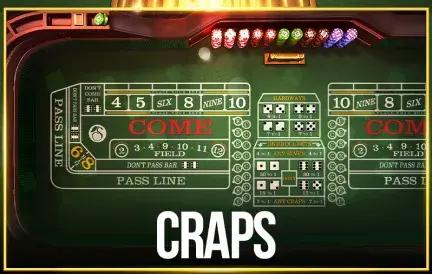Poker Rules for Beginners: Hands, Betting & Game Flow
May 26th, 2025
24029
Want to learn poker the easy way? Welcome to the ultimate guide on how to play poker! Whether you're sitting down for your first home game or aiming to understand the pros on TV, mastering the fundamentals is your first step to success. This comprehensive breakdown covers everything you need to know, from the value of your cards to the flow of a betting round. We'll explore the essential poker game rules that form the foundation of nearly every variant, ensuring you can join any table with confidence. Let's deal you in! 👇
What are the Rules of Poker
- Provides a clear framework for gameplay and decision-making
- Standardized rules make it easy to learn and play across different platforms
- Supports strategic and skill-based play
- Applicable to various poker variants like Texas Hold’em and Omaha
- Helps beginners understand betting rounds, hand rankings, and winning conditions
- Complex rules in some variants can be overwhelming for new players
- Misunderstanding rules may lead to mistakes and losses
At its core, poker is a card game combining skill, strategy, and a degree of chance. The primary objective is to win the "pot" – the sum of all bets made in a single hand. You can achieve this in two ways: by having the best-ranking hand at the end of the game (the showdown) or by convincing all other players to fold their hands, leaving the pot to you. Understanding what are the rules of poker is the crucial first step.
👀These rules govern how cards are dealt, the order of play, how bets are made, and which hand wins. While many poker variations exist, they all share a common set of principles that, once learned, make it easy to adapt to different game types.
Expert Tip: Poker hands are ranked from high card to Royal Flush, with higher hands winning.
Difference Between Rules and Strategy
It's vital to distinguish between rules and strategy. Rules are the fixed framework of the game—they are non-negotiable. For example, a rule states that a Flush beats a Straight. Strategy, on the other hand, is how you play within that framework.
🔍 Rules are fixed mechanics: how many cards you get, how betting rounds work, and what wins.
Strategy is how you use those rules to gain an edge — like bluffing, reading opponents, or choosing when to fold.
✔️ Example: The poker betting rules may allow a player to bet at any time — but strategy tells you when it's profitable to do so.
So if you're asking what are the rules of poker, remember: rules are the structure — strategy is how you win within that structure.
Core Rules That Apply to Most Poker Variants
Before diving into specific formats like Texas Hold’em or Omaha, let’s cover the core rules that apply to nearly all poker game rules — no matter the version. Despite the dozens of poker casino games available, a set of universal principles ties them all together. These core mechanics are the bedrock of your poker education. Once you internalize these basic poker rules, you can confidently approach most games, knowing you understand the fundamental flow of play.
Hand Rankings (High to Low)
The most critical element of the poker hand rules is knowing which hand beats which. This hierarchy is consistent across almost all variants. The goal is to make the best possible five-card hand. Here they are, from the unbeatable Royal Flush down to a simple High Card.
| Hand Name | Example | Description |
|---|---|---|
| Royal Flush | A♠️ K♠️ Q♠️ J♠️ 10♠️ | The best possible hand. An Ace-high Straight, with all five cards of the same suit. |
| Straight Flush | 9♦️ 8♦️ 7♦️ 6♦️ 5♦️ | Five cards in numerical sequence, all of the same suit. |
| Four of a Kind | K♣️ K♠️ K♥️ K♦️ 5♠️ | Four cards of the same rank (e.g., four Kings) and one other card (the "kicker"). |
| Full House | J♥️ J♠️ J♣️ 8♦️ 8♣️ | Three cards of one rank and two cards of another rank. |
| Flush | Q♠️ 9♠️ 7♠️ 4♠️ 2♠️ | Any five cards of the same suit, not in sequence. |
| Straight | 7♦️ 6♣️ 5♠️ 4♥️ 3♦️ | Five cards in numerical sequence, but not of the same suit. Ace can be high (A-K-Q-J-T) or low (5-4-3-2-A). |
| Three of a Kind | 7♣️ 7♦️ 7♠️ K♦️ 9♣️ | Three cards of the same rank and two other unrelated cards. |
| Two Pair | A♠️ A♦️ 8♣️ 8♠️ Q♥️ | Two cards of one rank, two cards of another rank, and one kicker. |
| One Pair | K♥️ K♠️ 9♦️ 5♣️ 2♠️ | Two cards of the same rank and three other unrelated cards. |
| High Card | A♦️ Q♣️ 10♠️ 6♥️ 2♦️ | If no player has any of the above, the player with the highest single card wins. The poker high card rules state that Ace is the highest. |
Poker hand rules apply equally across most games — learn this table by heart for quick decisions.
Betting Rounds Explained
A hand of poker unfolds over several betting rounds. In community card games like Texas Hold'em and Omaha, these rounds have specific names.
- Pre-Flop: The first betting round. This happens after every player receives their initial private cards ("hole cards") but before any community cards are dealt.
- The Flop: The second betting round. It begins after the dealer places the first three community cards face-up on the table.
- The Turn: The third betting round. This occurs after the fourth community card is dealt.
- The River: The final betting round. This happens after the fifth and final community card is revealed.
💡In each round, players have the chance to bet, and action proceeds clockwise around the table until every player has either folded or matched the total amount bet. The specific poker betting rules ensure a structured and fair progression of the game. The flow of betting is always clockwise, starting with the player to the left of the dealer button.
Common Actions: Check, Call, Raise, Fold, All-In
During your turn in a betting round, you have several options. Understanding these actions is fundamental to the rules for poker. In each betting round, you have several options:
- Check: If no bet has been made in the current round, you can "check." This means you pass the action to the next player without betting anything, while keeping your cards.
- Call: To match the current bet or raise. If a player before you bets $10, calling requires you to also bet $10.
- Raise: To increase the amount of the current bet. If a player bets $10, you could raise to $20 (or more, depending on game limits). Other players must then call your new, higher bet to stay in the hand.
- Fold: To discard your hand and forfeit any chance of winning the pot. You lose any money you have already bet in the hand. You do this when you believe your hand is too weak to win.
- All-In: To bet all of your remaining chips. If another player has more chips than you, they can call, but you are only eligible to win the portion of the pot that matches your all-in amount.
🧠 These are the poker basic rules — you'll use them in every single hand.
Smart Tip: Betting occurs in structured rounds, including options to call, raise, or fold.
Showdown and Pot Distribution
The showdown happens after the final betting round is complete, provided at least two players remain in the hand. Players reveal their cards, and the one with the best-ranking five-card hand wins the entire pot.
The player who made the last aggressive action (the last bet or raise) is typically required to show their cards first. If there was no betting on the final round, the player to the left of the dealer button shows first. If a player's hand is beaten by one shown previously, they are allowed to "muck" (discard without showing) their losing hand. The pot is awarded, and the next hand begins.
📌 Poker high card rules are used when players have the same hand rank — the winner is decided by who has the highest unused card.
Game Formats and Rule Differences
Not all poker games are played the same way. While the simple poker rules stay consistent, the format can greatly affect your decisions, pace, and stakes. Here's what you need to know about the major differences.
Cash Games vs. Tournament Poker
Understanding the distinction between these two formats is key for any aspiring player. A cash game is ongoing, while a tournament has a defined start and end. Here’s a simple comparison.
| Feature | Cash Games | Tournament Poker |
|---|---|---|
| Buy-In | Flexible (based on table limits) | Fixed entry (everyone starts equally) |
| Chip Value | Chips = real money | Chips = tournament-only |
| Blinds | Stay the same | Increase over time |
| Duration | Open-ended (join/leave anytime) | Ends when one player has all chips |
| Strategy Focus | Stack management less critical | Survival and chip accumulation |
🏆 Tip: In tournaments, understanding poker betting rules is vital during later stages like bubble play or final tables.
Blind Structure and Buy-ins
In most games, the action starts with blinds — forced bets that rotate around the table:
- Blinds: These are forced bets made by two players before the cards are dealt to stimulate action. The "small blind" and "big blind" positions rotate clockwise each hand. In cash games, these amounts are constant. In tournaments, they escalate.
- Buy-in: This is the amount of money required to join a game. In a cash game, the buy-in gives you chips of an equivalent cash value. In a tournament, the buy-in gets you a starting stack of tournament chips. Tournaments have a one-time buy-in (unless rebuys are allowed).
Players must post these blinds before the hand begins. This ensures there's always money in the pot.
🎫 Buy-In: The minimum amount needed to enter a game or tournament. For cash table games, it's tied to blind size (e.g., $1/$2 blinds = $100–$200 buy-in). For tournaments, it's fixed (e.g., $100 + $10 fee).
Antes, Rebuys, and Add-ons in Tournaments
Besides blinds, tournaments may also include:
- Antes – Small mandatory bets by every player, added to the pot pre-flop.
- Rebuys – Option to buy more chips if you're eliminated early (limited to early stages).
- Add-ons – One-time chip boost at a specific point in the tournament (usually after the rebuy period ends).
These elements are part of the extended rules of poker in modern tournaments and affect your chip strategy significantly.
Variant-Specific Poker Rules
Different poker games follow their own mechanics — from the number of hole cards to betting rounds. Each game has unique poker card rules that change the strategy and gameplay. Here’s a look at the most popular variants. Here’s how the rules for poker shift based on the format.
Texas Hold’em Rules (Most Standard Format)
This is the king of poker games and the one you'll see most often. The poker rules for beginners are best learned through this variant due to its simplicity and popularity.
- Each player gets 2 hole cards
- 5 community cards are dealt face-up (flop, turn, river)
- Players make the best 5-card hand using any combo
- 4 betting rounds (pre-flop, flop, turn, river)
📚 Texas Hold’em is the most played format and the foundation of most poker card rules online and in casinos.
Omaha Rules (Hi and Hi-Lo)
- Each player gets 4 hole cards
- Must use exactly 2 hole cards + 3 from the board
- Omaha Hi: highest hand wins the pot
- Omaha Hi-Lo: pot split between highest and lowest qualifying hands (8 or lower)
🧠 Requires strong hand-reading and combo math. A bit more complex than poker rules for dummies, but rewarding.
7-Card Stud Rules
Before Hold'em's rise, 7-Card Stud was the most popular poker game. It has no community cards.
- No community cards
- Each player gets 7 cards (3 face-down, 4 face-up)
- Best 5-card hand wins
- Includes antes and “bring-in” bets
♠️ Stud games test memory and observation skills since many cards are visible throughout the hand.
Draw Poker Rules (e.g., 5-Card Draw)
- Players are dealt 5 private cards
- One betting round, then a draw phase (discard & replace)
- Final betting round before showdown
🎯 Classic game, great for learning poker rules for beginners because of its simplicity.
Mixed Games (HORSE, 8-Game, etc.)
Mixed games are the ultimate test of a well-rounded poker player. These games rotate between several different poker variants after a set number of hands or a full orbit of the dealer button.
- HORSE includes: Hold'em, Omaha Hi-Lo, Razz, Stud, Stud Hi-Lo
- 8-Game adds more like NLHE, PLO, 2-7 Triple Draw
- Format switches after a set number of hands or time
💡 Best for advanced players. You'll need to adapt to changing poker game rules constantly.
Live Poker Rules (Casino or Home Game)
When playing in a live setting — whether at an online casino or with friends — understanding poker rules includes more than just gameplay. It’s also about etiquette, fairness, and table behavior. Playing poker with physical cards and chips introduces a human element with its own set of rules and etiquette. Whether at a formal casino table or a casual home game, these guidelines ensure fairness and a smooth flow of play. Mastering these poker basic rules for live settings is essential.
Top Tip: The game flow usually follows deal → betting → community cards → final betting → showdown.
Dealer Responsibilities and Button Rotation
In casinos, there’s a dedicated dealer, but in home games, players usually rotate the role.
| Position | Description |
|---|---|
| Dealer Button | Indicates the theoretical dealer for the hand. |
| Small Blind | Posted by the player to the left of the dealer button. |
| Big Blind | Posted by the next player to the left of the small blind. |
| Rotation | The button rotates clockwise after each hand, changing player positions. |
The button ensures fair distribution of position — an important strategic concept in poker.
Verbal Declarations vs. Chip Movement
In live poker, words are binding. If you say "call," you're calling — even if you mistakenly push in more chips.
🎯 Actions mean something too:
| Action Type | Rule |
|---|---|
| "Raise" | If you say "raise," you must raise. You can’t say it and then just call. |
| "Call" | If you say "call," you must call. You can’t change your mind and raise. |
| Declared Amount | Saying "raise, one hundred" commits you to betting exactly that amount. |
| Silent Actions | Your first motion determines your move: • Pushing chips = bet • Tapping table = check |
🏆 Tip: Declare your intentions clearly to avoid misinterpretation of the poker rules sheet at the table.
Irregularities (Misdeals, Exposed Cards, String Bets)
Here are common issues and how they’re handled:
| Situation | Action Taken |
|---|---|
| Misdeal | Cards are reshuffled and re-dealt. |
| Exposed Card | Depends on position; may continue or result in a redeal. |
| String Bet | Only the initial amount pushed forward is counted. |
| Acting Out of Turn | A warning is given; action may be binding depending on context. |
🛑 Poker rules for beginners must include these situations — they can cause confusion or disputes in live play.
Proper Conduct and Table Etiquette
Table behavior is as important as hand strength. Live poker has unwritten expectations:
- Don’t talk during hands you’re not in.
- Don’t slow-roll (revealing winning hand slowly on purpose).
- Don’t celebrate too loudly or criticize opponents.
- Protect your cards with a chip or card guard.
📌 Violating etiquette won’t break the official poker card rules, but it could get you kicked from the table.
Online Poker Rules and Mechanics
Playing poker online automates many aspects of the game, creating a faster and different experience. The rules are the same, but the execution is digital. This format is often seen as a great learning ground for mastering poker rules for dummies and beginners because the software prevents you from making procedural mistakes.
Automated Dealer Actions
The software deals cards, collects blinds, and pushes pots. You don’t need to worry about dealer mistakes — it's instant and fair.
✅ Example of automation:
- Timer ensures fast play
- Pots are split automatically
- Fold/check/call buttons are one click away
📌 The basic poker rules are all handled by the software backend.
Time Banks and Disconnect Handling
Online, you have a limited time to act on each decision.
- Players get limited time to act. If time runs out, your hand may auto-fold.
- Time Bank: An extra few seconds added to act in tough spots.
- If you disconnect mid-hand, most sites fold your hand to protect the game.
⛔ Exploiting disconnects to stall is considered bad conduct and may result in penalties.
Multi-Tabling and Use of Software Tools
Online players can open several tables at once (multi-tabling). It increases volume but reduces focus per table.
Some tools are permitted:
| Tool | Description |
|---|---|
| PokerTracker | A tracking software allowed on many sites. It logs hands, analyzes play, and helps improve strategy. |
| HUD (Heads-Up Display) | Displays real-time stats of opponents at the table, such as VPIP, PFR, aggression, etc. Often used alongside PokerTracker. |
🚫 Not allowed:
| Tool | Description |
|---|---|
| Real-Time Assistance (RTA) | Includes solvers or decision-making bots that provide optimal plays during live hands — strictly forbidden. |
| Data Mining Tools | Software that collects hand histories without playing — used to gain unfair advantage against opponents. |
🧠 Online poker game rules often have site-specific terms in their Terms of Service.
Differences from Live Play You Must Know
Think You Know Poker? Think Again. Whether you’re a seasoned live grinder or just dipping your toes into the online felt, one thing’s for sure — online poker isn’t just live poker with a screen. From the speed of play to the psychology of your opponents, the differences run deep — and if you don’t know them, they will cost you.
| Feature | Online Poker | Live Poker |
|---|---|---|
| Speed | Fast (hands auto-dealt in seconds) | Slower, manual dealing |
| Reads | Based on stats and timing | Based on behavior and tells |
| Physical Presence | None | Face-to-face interaction |
| Multi-Tabling | Yes | Impossible |
| Etiquette | Less personal | Highly valued |
📌 Many poker rules for dummies guides ignore these differences — but they’re crucial for switching between formats.
Tournament Rules and Procedures
Tournaments are a battle of survival. The goal is to accumulate all the chips and be the last player standing. This format has a specific set of procedures that differ greatly from cash games and are crucial to understand. The best way to learn them is with a clear poker rules sheet or guide like this one.
Blinds and Level Progression
In tournaments, blinds increase over time, making chip preservation and aggression key to survival.
📈 Typical blind level structure:
| Level | Small Blind | Big Blind | Duration |
|---|---|---|---|
| 1 | 25 | 50 | 15 min |
| 2 | 50 | 100 | 15 min |
| 3 | 75 | 150 | 15 min |
| … | … | … | … |
This creates pressure as the game goes on — a major difference from cash game poker betting rules.
Rules for Elimination and Bubble Play
You are eliminated from a tournament when you lose all your chips. When a player is all-in and loses the hand, they are out of the event.
Bubble Play = the period right before payouts begin.
📌 Example:
- 100 players
- Top 15 get paid
- 16th place = “bubble” (no payout)
During bubble time:
- Players may fold strong hands to survive.
- Aggressive players exploit tight opponents.
✋ Understanding this dynamic is key for tournament success and goes beyond the simple poker rules.
Deal-Making, ICM, and Chop Agreements
You’ve battled your way through the field, dodged coolers, and crushed bubbles — now you're sitting deep in the money. But wait… suddenly, the table talk shifts. “Want to look at numbers?” someone asks.
Welcome to the high-stakes world of deal-making, ICM pressure, and chop agreements — where every decision can mean thousands. Whether you're at a live final table or grinding online, understanding how and when to make a deal isn't just smart — it's essential. Once a tournament reaches the final few players, deals can be negotiated:
- Chop – Players agree to split the prize pool.
- ICM (Independent Chip Model) – Calculates fair payout based on current stacks and remaining prizes.
This is common in high-stakes poker where variance is brutal. These decisions are not part of the standard poker rules sheet, but every pro knows them.
Penalties and Warnings (e.g., for Slow Play or Chat Abuse)
Tournaments enforce proper behavior:
🚫 Infractions that can get you penalized:
- Repeatedly stalling (slow play)
- Inappropriate language in chat
- Excessive tanking (taking too long to act)
- Angle shooting or soft play
👮 Penalties range from:
- Verbal warning
- Missed hands or blind penalties
- Disqualification (DQ)
These aren’t covered in the poker high card rules, but are enforced by the floor staff or tournament director.
Unwritten Rules and Fair Play
Poker is not just about the cards — it’s about conduct and fairness. These aren't always printed in a poker rules cheat sheet, but they matter just as much. From table talk to timing tells, the way you act at the table speaks volumes. Break these invisible rules, and you risk more than just chips — you risk your reputation.
🔍Let’s explore the poker etiquette every serious player should know — whether you're in a smoky cardroom or clicking buttons online.
Soft Play and Collusion (What’s Not Allowed)
These are forms of cheating and are strictly forbidden.
| Term | Definition |
|---|---|
| Soft Play | Going easy on friends or partners at the table instead of playing competitively. |
| Collusion | Secret cooperation between players to cheat or gain an unfair advantage. |
Both are strictly forbidden:
❌ Examples:
- Not betting aggressively against a friend
- Sharing chip stacks
- Communicating about hands during play
🎯 Even poker rules for beginners guides should highlight this as it ruins game integrity.
Slow Rolling, Angle Shooting, and Other Violations
These actions are not technically illegal but are considered extremely poor etiquette and will earn you the disrespect of fellow players.
⛔ Slow Roll: Deliberately delaying a winning hand at showdown to needle an opponent.
🎯 Angle Shooting: Technically legal but unethical behavior, like:
- Faking a fold
- Acting out of turn on purpose
- Hiding large denomination chips
🛡️ These don’t break the poker basic rules, but break the spirit of the game.
Code of Conduct at the Table
Following a simple code of conduct ensures a pleasant experience for all. Proper behavior builds respect and keeps the game enjoyable:
| Do | Don’t |
|---|---|
| Act in turn | Complain constantly |
| Keep your cards visible at all times | Stare down opponents aggressively |
| Congratulate winners respectfully | Delay the game unnecessarily |
This section is crucial even in a poker rules for dummies manual — how you behave is part of how you play.
Frequently Asked Questions About Poker Rules
What happens if two players have the same hand?
If two or more players have the exact same five-card hand ranking (e.g., both have a Flush, or both have Two Pair), the pot is split evenly between them. If the hands are similar but not identical (e.g., both players have one pair of Aces), the winner is decided by the "kicker"—the highest-ranking side card(s). For example, a hand of A-A-K-J-5 beats A-A-Q-J-5 because the King kicker is higher than the Queen kicker.
Can you show your cards before folding?
In almost all casino and official tournament settings, this is against the rules. Showing your cards to one player before the hand is over gives them an unfair advantage and can influence the action of other players still in the hand. The rule is "show one, show all"—if you show one player, you must show the entire table. It is best practice to simply fold your cards face down without revealing them.
What is a misdeal and when is a hand canceled?
A misdeal is an error during the dealing process that is significant enough to warrant canceling the hand and starting over. The pot is returned to the players, and the button moves to the next position for a fresh hand. Common reasons for a misdeal include:
- The first or second card dealt is exposed.
- Two or more cards are exposed during the deal.
- A player receives the wrong number of cards.
- The dealer starts dealing to the wrong position.
Are rules different in home games?
Yes, home games often have "house rules" that can differ from official casino rules. For example, some home games might be more lenient about string bets or allow players to show their cards. It is extremely important to clearly establish and agree upon all house rules before the game begins to prevent arguments later on. This includes things like buy-in amounts, a potential time limit, and any unusual hand rankings that might be used.
Related posts











